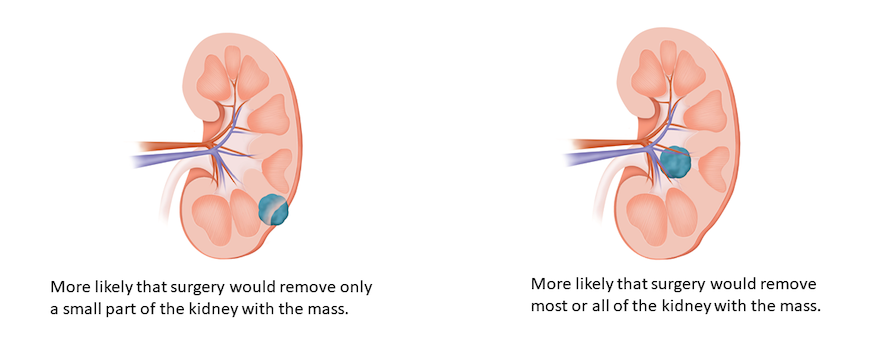Treatment Effects on Kidney Function
Treatment choice can affect kidney function
Kidney Function may be harmed during surgery, and is harmed more often than in percutaneous ablation. There is almost zero chance of harming the kidneys during active surveillance. Poor kidney function increases your chances of dying from other causes, such as heart attacks, even if you do not have kidney failure (need dialysis). Although the kidney damage can be permanent, there is almost no chance that you will need dialysis because of the surgery itself.
Your kidney function will be tested to see if it is already lower than normal. If this is the case, you may be at greater risk for harm from surgery. Some facts about kidney function:
- Aging leads to decreasing kidney function.
- Some common diseases, like diabetes or high blood pressure, also worsen kidney disease over time.
- If you are older (over 60 years of age) and have poor kidney function, the kidneys may not recover after surgery. In fact, your kidney function may get worse.
What are some important factors to think about?
- For people with chronic kidney disease, it is important to avoid further loss of kidney function for survival.
- If your small kidney mass is near the edge of the kidney, it is typically easier to remove during surgery without causing harm to the kidneys.
- If your small kidney mass is near the center of the kidney, choosing surgery may mean that most or all of the kidney may be removed.
- If your mass does not grow, avoiding surgery may mean saving a part or all of that kidney and its function.

